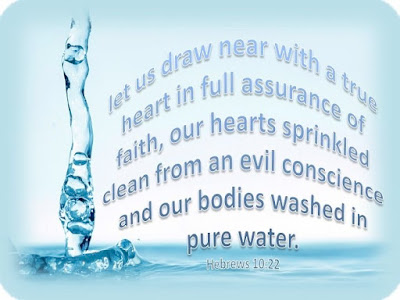Mass and the Unwashed Masses
Is the church's liturgy only for a few, for the educated, the cultured, and well read? Hardly. Though the liturgy, by its very nature and mystery invites education, catechesis, and teaching. In fact, the liturgy is great for little children who can't yet read, and for those who never learned. The liturgy is wonderful for those who eyesight has dimmed, whose capacity isn't what it used to be. The liturgical rhythm enters into the soul's deepest places, embeds itself within the mind and heart.
Why is it that the average Roman Catholic in the pew does not believe in the real presence? It's not because of what the church says, but by the casual way in which the supper is offered and distributed. The same I'm sure goes for us in the LCMS. Say that Christ's offers his true body and blood, but then, if the ministers are dressed as if they were sales people, if they treat the elements like fast food, if bodily reverence is nowhere to be found, people will get the message. It must not be all that special.
The American Evangelical world of course has no clue in such matters. If baptism is just a commitment ceremony, and if the supper is a reenactment, then a certain seriousness may be called for, but there's no reason for solemnity. For much of the Big Box church world, there is nothing approximating the Temple. (No wonder, they hope it's rebuilt.) Could we imagine the High Priest entering the Holy of Holies in street clothes, big smile on his face after an inspirational life lesson, music from the praise band? But we do have something holier still. If we believed in the priesthood of all believers, truly believed it, then we would encourage the awe and reverence appropriate to God's dwelling among us, Christ's giving of flesh and blood, a font from which springs forth life and forgiveness.
The church service has never been about, should never be about, defining a class of people as high class, but should be conducted in a way that is appropriate to the proceedings. Standing up for the gospel is an act of reverence, as when grandma enters the room. Kneelers offer an opportunity for bodily posture that matches spiritual reality. The judge, robed in black, approaches the bench, and the courtroom is hushed into silence. A pin dropped is noise too loud for the ceremony of the Tomb of the Unknown Soldier.
The church service is all about sacred space, the Lord of all speaking and working among us. The church is our home, but Christ is the head of that home, and being in the Father's house means something. Little Children rightly feel comfortable there, for it is their home, they are the baptized, and the Lord's arms are wide open in embrace, and his hand is given for them in blessing. But we should never grow so casual as to be disdainful, so that we might lose awe, and forget where we are. Indeed, it is said that Ronald Reagan never entered the Oval Office without jacket and tie. May seem a bit much. But it was his way of reminding himself of the sacred duty with which he had been entrusted. And so also the sacred liturgy does well to be in harmony with the sacred things that we confess are taking place.









